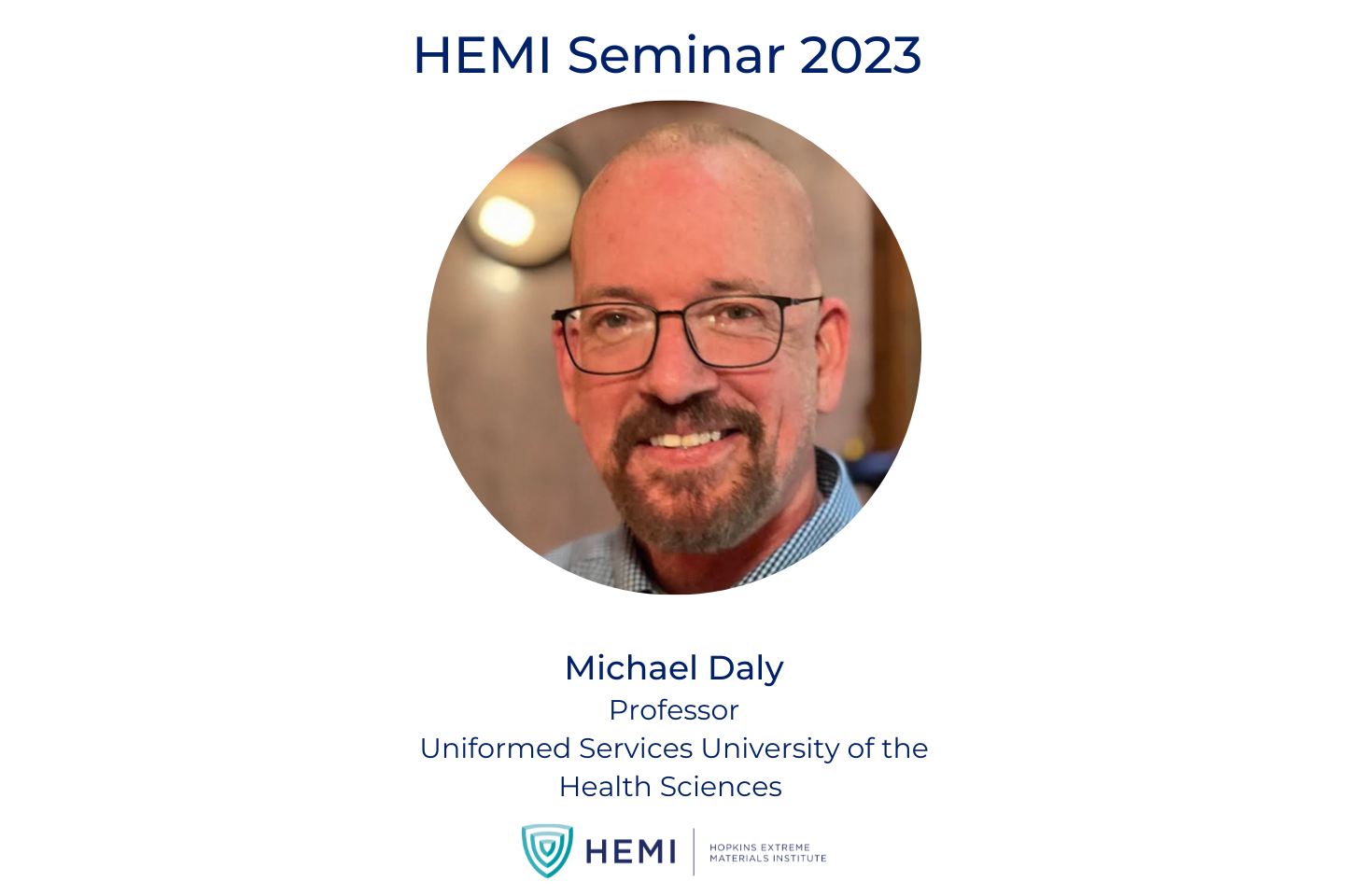April 28, 2023 @ 11:00 am - 12:00 pm

Location: Malone G33
Title: The Physicochemical Survival-Limits of Life’s Biomolecules as Exemplified by the Astonishing DNA Repair Capacity of the Bacterium Deinococcus radiodurans
Abstract: The Deinococcaceae family exhibits exceptional radiation resistance and possesses all the necessary traits for surviving in radiation-exposed environments. The type strain Deinococcus radiodurans R1 (ATCC BAA-816) can survive 25 kGy of ionizing radiation in liquid culture and an astonishing 140 kGy when the cells are both desiccated and frozen, and similarly for UVC survivability at fluxes that exceed 5 kJ/m2. Their survival strategy involves the coupling of metabolic and DNA repair functions, resulting in an extraordinarily efficient homologous repair of DNA double-strand breaks (DSBs) caused by radiation or desiccation. The key to their survival lies in the hyperaccumulation of manganous (Mn2+)-metabolite antioxidants that protect their proteins under extreme oxidative stress, and the persistent structural linkage by Holliday junctions of their multiple genome copies per cell that facilitates DSB repair. This coupling of metabolic and DNA repair functions has made polyploid Deinococcus bacteria a useful tool in environmental biotechnology, radiobiology, aging, and planetary protection. This work highlights the groundbreaking contributions of the Deinococcaceae to our understanding of the radiation survival-limits of life, demonstrating that the proteome, rather than the genome, is the primary target responsible for survivability. These discoveries have led to the commercial development of irradiated vaccines using Deinococcus Mn-peptide antioxidants and have significant implications for various fields.
Biography: Michael J. Daly is a distinguished professor of pathology at the Uniformed Services University in Bethesda, Maryland, whose research interests center on Deinococcus bacteria. The Deinococcus Group at USU has been a driving force behind several innovations in various areas, including:
- Chromosomal recombination platforms (Daly and Minton, 1996).
- Bioremediation of nuclear wastes (Brim et al. 2000).
- Functional genomics (Makarova et al. 2001).
- Mn antioxidants (Daly et al. 2000).
- Radioprotectors (Gupta et al. 2016).
- Measuring radioresistance by EPR (Sharma et al. 2017).
- Radioresistant fungi (Tkavc et al. 2018).
- Irradiated vaccines (Tobin et al. 2020).
- Aging (Gaidamakova et al. 2022).
- Planetary protection (Horne et al. 2022).
Recent papers on the survival limits of life:




